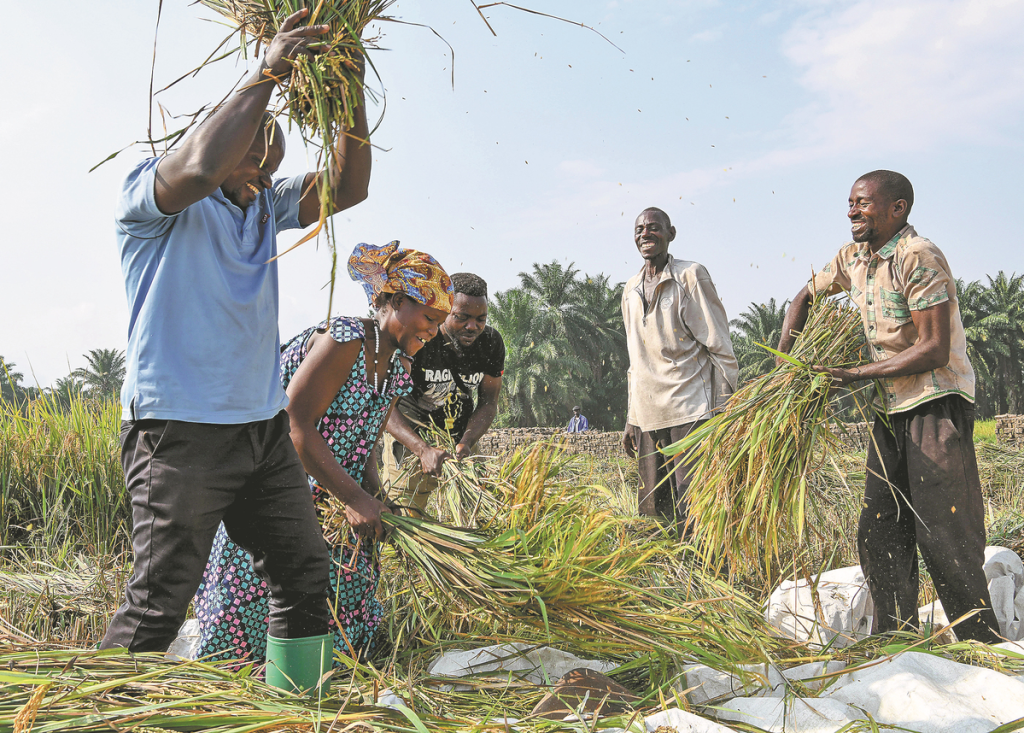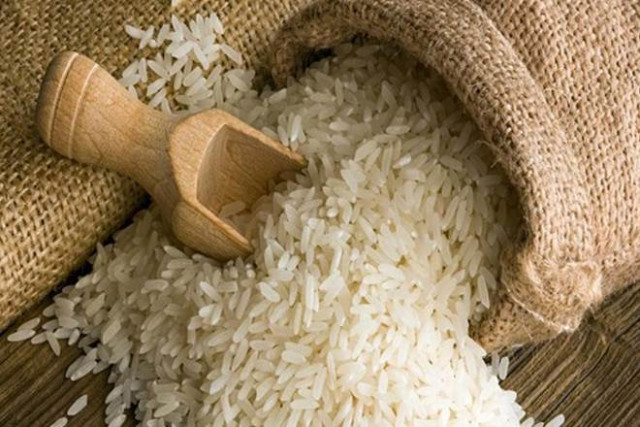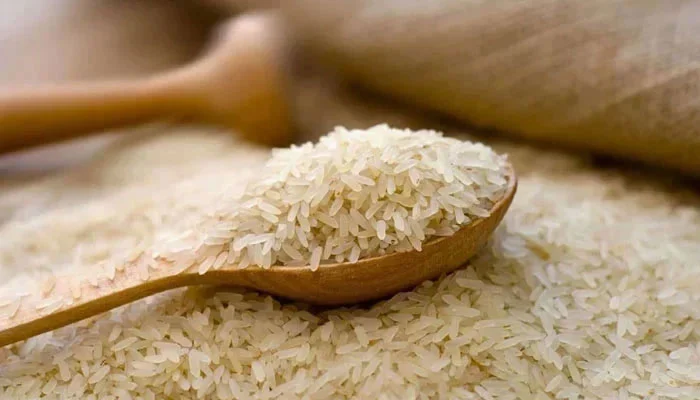Tags
Burundi man reaps career success with hybrid rice

Farmers thresh hybrid rice in Kihanga, Bubanza Province, Burundi, on June 20. HAN XU/XINHUA
For two years, Evrard Ndayikeje had no job after graduating from university. But things changed in 2016 when he joined China’s hybrid rice planting demonstration program.
Speaking fluent English, the smart and studious young Burundian man impressed Chinese experts at their initial meeting. He was then hired as their assistant and was taught how to grow Chinese hybrid rice.
“They changed my life in a short time,” Ndayikeje said. “Before I met the Chinese experts in 2016, I didn’t have work for two years after graduating from university, and I grew traditional rice on my family’s land, but didn’t have much production and didn’t have money.”
The East African country Burundi is known as the “heart of Africa” with a tropical climate and abundant rainfall. Its natural conditions are favorable to rice production, but Burundians have suffered from food shortages due to low rice yields.
China has been implementing technical cooperation programs in Burundi since August 2009, sending dozens of experts to the African country to help develop its agriculture.
“Our hybrid rice yields are twice as much as the local varieties,” Chinese expert Jiang Daiming said. “Rice yields here used to be only 2 to 3 metric tons per hectare, while the introduced disease-resistant varieties can yield 4 to 5 tons per hectare, sometimes even 7 tons.
“It will be important to improve the local rice crop (yield) if production can be expanded in the future.”
Agricultural cooperation with a view to reduce rural poverty in Africa has been an important area of China-Africa cooperation in recent years. During the 8th Ministerial Conference of the Forum on China-Africa Cooperation held in Senegal in 2021, China announced that it would implement the poverty reduction and agricultural development program with Africa over the next three years.
As part of the program, China plans to send 500 agricultural experts to Africa, set up joint centers for modern agrotechnology exchange, demonstration and training in China, and encourage Chinese institutions and companies to build demonstration villages in Africa to support agricultural development and poverty reduction.
In 2019, Ndayikeje won an award given by the Chinese embassy for the high production of Chinese hybrid rice, which reached 11 tons per hectare by that time. Previously, he could only harvest 3 tons per hectare before he managed to grow the hybrid rice.
The Burundian government also employed him as a member of the national committee for the development of the environment, agriculture and livestock in Bubanza Province, where Ninga village is located.
So far, at least 140 households in the village have planted 225 hectares of hybrid rice with an average annual income of $4,200 per household, and the villagers are now able to feed themselves.
Ndayikeje even named his first child Yang after his Chinese mentor Yang Huade. “So that I will always keep his kindness in mind,” he said.
Xinhua and Zhao Ruinan in Beijing contributed to this story.
https://global.chinadaily.com.cn/a/202310/20/WS6531de28a31090682a5e9b4d.htmlPublished Date: October 20, 2023





